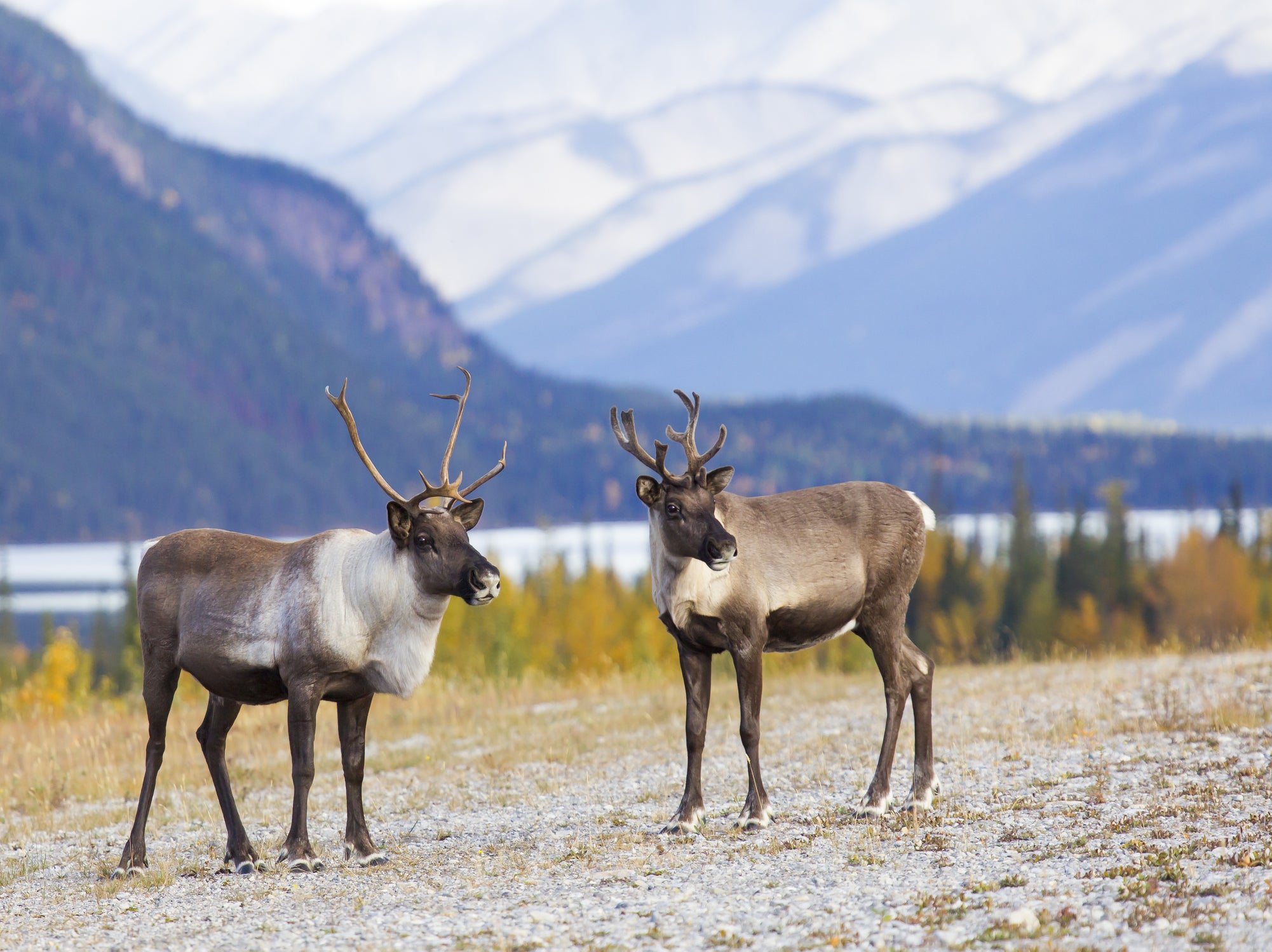Caribou will likely face population declines rarely experienced in 21,000 years due to climate change. That’s the main finding from our recently published research on the historical resilience of caribou populations.
Caribou, also called reindeer, are a majestic species with remarkable adaptations to the cold Arctic environments of Eurasia and North America.
Despite surviving through large climatic fluctuations in the past, future climate warming may cause a drastic decline in caribou populations. Arctic environments are extremely sensitive to climate change, and they are expected to warm two times more than the global average.
In our research, we simulated how caribou population abundance shifted in response to climate change since the last ice age to the present day, and projected it into the future to 2100. This allowed us to directly compare past and future rates of decline.

We decided to look back 21,000 years because, in the past, Arctic climates have fluctuated abruptly, with temperatures in areas such as Greenland increasing by up to 10 degrees in just a few decades. We figured that if we could identify the traits that helped caribou to survive these past warming events, we would be able to better predict their vulnerability to future climate change.
To do this, we combined fossils and historical observations with climate reconstructions to map caribou habitat suitability across regions and time at a high resolution. We then used computer modelling to simulate how populations responded to changes in the suitability of these environments following the last ice age.
What our research shows
We found that caribou were able to survive past climatic fluctuations thanks to their ability to live in diverse environments, move long distances and survive in low numbers.
However, when projecting these models forward in time, we discovered that these traits might not be enough to safeguard future populations. If action is not taken to mitigate climate change, we project a 58 per cent decline in population size across the whole geographic distribution of the species by 2100.
About the authors
Elisabetta Canteri is a Postdoctoral Researcher in the Globe Institute at the University of Copenhagen.
Damien Fordham is an Associate Professor of Global Change Ecology at the University of Adelaide.
This article is republished from The Conversation under a Creative Commons license. Read the original article.
Losses in North America are likely to be most severe, with decreases of 84 per cent predicted in response to Arctic warming.
This is because North America is projected to be the region losing the largest extent of habitats suitable for caribou due to climate change and other human impacts on the land.
Even under a more optimistic climate change scenario, with less temperature change, we still expect North American caribou populations to experience large losses. This suggests that recent declines observed in large herds of caribou are expected to continue into the future.
Threats not directly included in our models, such as diseases, extreme weather die-offs and unregulated hunting, could further worsen the impacts of climate change on caribou populations.
Broader ecological implications
Dramatic declines in caribou populations might have far-reaching ecological implications. Thanks to their feeding behaviour, caribou help stop the advancement of forests to northern latitudes and maintain the diversity of plants in the tundra.
In doing so, caribou play a key role in maintaining healthy tundra environments. A decrease in tundra plant diversity affects carbon uptake, soil nutrient availability and even how well the landscape reflects light. Therefore, declines in caribou populations will have knock-on effects on tundra ecosystems that will further accelerate climatic warming.
These drastic declines in caribou populations will have impacts that go beyond the Arctic’s natural environment. For many Indigenous Arctic communities, caribou are essential. People in these regions rely on caribou for food and economy, cultural identity and an overall sense of well-being. Population declines will therefore cause profound losses, impacting the livelihoods of many communities.
Our findings suggest a grim future for caribou and signal an urgent need for governments to increase investments in the conservation and management of the species. This should include protecting and ensuring access to historical pastures and migration routes.
Actions that we take today to reduce our carbon footprint will benefit caribou, nature and Arctic Indigenous communities in the decades to come.
Appeals court allows EPA to end $20B ‘climate bank’ for projects
Hurricane Katrina hit 20 years ago. Trump can’t handle a similar storm, experts say
These countries are sinking into the sea. What happens when they disappear forever?
Some 55 million gallons of sewage are threatening Hawaii’s coral reefs
Professor’s joy as truffle is grown on Isle of Bute in ‘landmark’ moment
Mapped: Storm Tapah forces evacuations in China and shuts schools in Hong Kong







